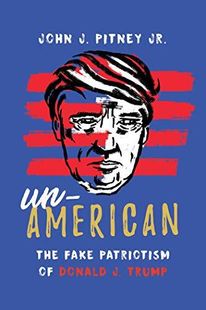Nixon v. Trump
Jack Pitney’s GOP affiliation survived Watergate, but not Donald Trump. He explains the difference.
“I teach a course on Nixon. I tell my students: ‘Everything bad you can say about Nixon is true. And everything good you can say about Nixon is true.’ As you may be aware, CMC is intimately connected with Nixon. This was his congressional district. Nixon’s career and CMC started in the same place, at the same time: 1946. His campaign headquarters were in Pomona. Four years later, when he announced his candidacy for the United States Senate, the person who introduced him at that meeting was none other than George C.S. Benson, our founding president.
Here’s the difference between Nixon and Trump: Nixon didn’t take the party with him. There were a bunch of Republicans on the judiciary committee who voted for his impeachment. Only one Republican stood up to vote to convict Trump at his impeachment.
Watergate was a Nixon problem—a huge problem. But it wasn’t a systemic Republican problem. Trump is a systemic Republican problem.”
“As far as I can tell, my family has been Republican since the Civil War on both sides,” said Jack Pitney, Roy P. Crocker Professor of American Politics.
And like his forebears—dairy farmers, shopkeepers, small-town political functionaries—Pitney was a GOP enthusiast from a tender age. By 13, he was leafletting for presidential candidate Richard Nixon in his hometown of Saratoga Springs, New York. On the morning of his 18th birthday, Pitney made a special trip to the county seat in Ballston Spa to register as a Republican. That was in 1973, the height of the Watergate scandal.
With Nixon’s resignation and Gerald Ford’s pardon, Pitney soldiered through GOP disgrace. He went on to work as a full-time staffer for Republican officials and organizations in Albany, New York City, and Washington, D.C. But for Pitney, the rise of Donald J. Trump as his party’s leader broke 40 years of good faith.
“I voted for every Republican presidential nominee between 1976 and 2012,” Pitney wrote in the preface to his new book, Un-American: The Fake Patriotism of Donald J. Trump. “When Donald Trump clinched the nomination in 2016, however, I knew that the streak would end.”
On the morning of Nov. 9, shortly after Trump claimed victory in the presidential election, Pitney opened his laptop and solemnly changed his voter registration to independent.
“Trump is a mashup of all the sorriest parts of Republican history: Herbert Hoover’s trade policy, Warren Harding’s incompetence, Charles Lindbergh’s dictator worship, and Joseph McCarthy’s dishonesty,” he wrote in a May 23, 2017 op-ed for USA Today.

Un-American is an encyclopedia of the current president’s character shortcomings. The 200-page “polemic”—Pitney’s word—lays out a raft of evidence gathered from Trump’s own speeches, interviews, and tweets.
“It’s very different from my other books, which have been academic, scholarly: bending over backward to provide alternative points of view,” said Pitney, who joined CMC’s faculty in 1986, shortly after earning his Ph.D. at Yale.
The title itself is deliberately provocative. After all, how can a president whose slogan is “Make America Great Again,” a president who cradles Old Glory at rallies while the loudspeakers blare “God Bless America,” be called unpatriotic?
Pitney’s answer: “Trump’s display of patriotism is a reality show—not reality.”
Divided into seven chapters, Un-American juxtaposes key phrases from the Declaration of Independence with Trumpian statements and conduct unbecoming of a patriot, Pitney said. A chapter titled “We Hold These Truths” inventories the president’s lies; another titled “Created Equal” investigates Trump’s flirtations with white supremacists and scorn for the disabled.
The book ends in 65 pages of endnotes. “I wanted to ground everything in citable sources,” Pitney said. “If people question my evidence, I give them the breadcrumbs. Essentially the notes are a way of telling people, ‘You don’t believe me? Check it out for yourself.’”
The intended audience for Un-American is “general readers, and more specifically, Republicans, former Republicans, or Republican-leaning independents who supported Trump out of party loyalty or a belief that it was a patriotic act,” Pitney said.
“My argument in the book is that Trump is neither patriotic nor is he consistent with Republican beliefs, which is why I changed my registration as soon as he was elected. It’s not that I left the party. The party left me.”
—Diane Krieger

